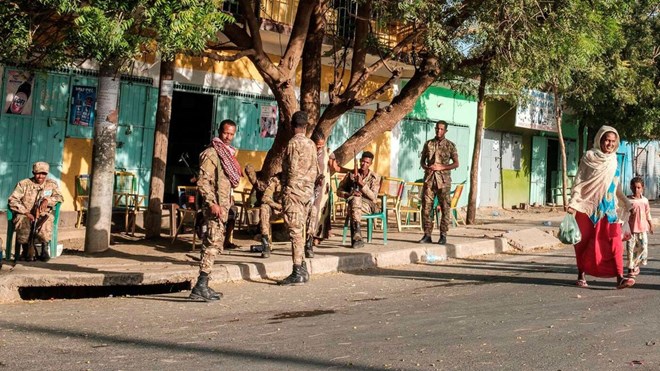The Ethiopian government announced on Thursday that it plans to incorporate all regional special forces into the national army, federal or regional police, or both, a move that would be interpreted as an attempt to limit the autonomy of specific areas.
Ethiopia is divided into ten regions, each of which has varying degrees of autonomy, ranging from having their own regional army to the right to use their own language.
“The administration has set a course to develop one strong and centralized army… it has begun practical procedures that will allow special forces from all regions to be integrated into different security formations,” the government said in a statement.
Hours before the statement, local media in Ethiopia’s second-largest region, Amhara, reported skirmishes between national and regional forces caused by Amhara Special Forces units’ unwillingness to surrender weapons as part of the integration process.
Gizachew Muluneh, the Amhara region’s spokeswoman, did not immediately reply to demands for comment.
Tensions
The administration acknowledged difficulties in Amhara, but blamed them on policy misunderstandings and extremist factions within the regional police.
As turmoil occurred in northern Tigray in 2020, Amhara army backed Prime Minister Abiy Ahmed’s federal troops against insurgent groups.
This is not the first time turmoil has erupted in the region. In May 2022, the former commander of the Amhara region’s military, a vocal opponent of Abiy, was imprisoned alongside local journalists.
In 2019, a separate dissident general organized an uprising that assassinated the regional president and chief of army staff.
Opponents claim that Abiy, who received the Nobel Peace Prize after assuming power as a reformist in 2018, is cracking down on opposition throughout Ethiopia. He claims to be ensuring stability as well as law and order in the multi-ethnic country.

